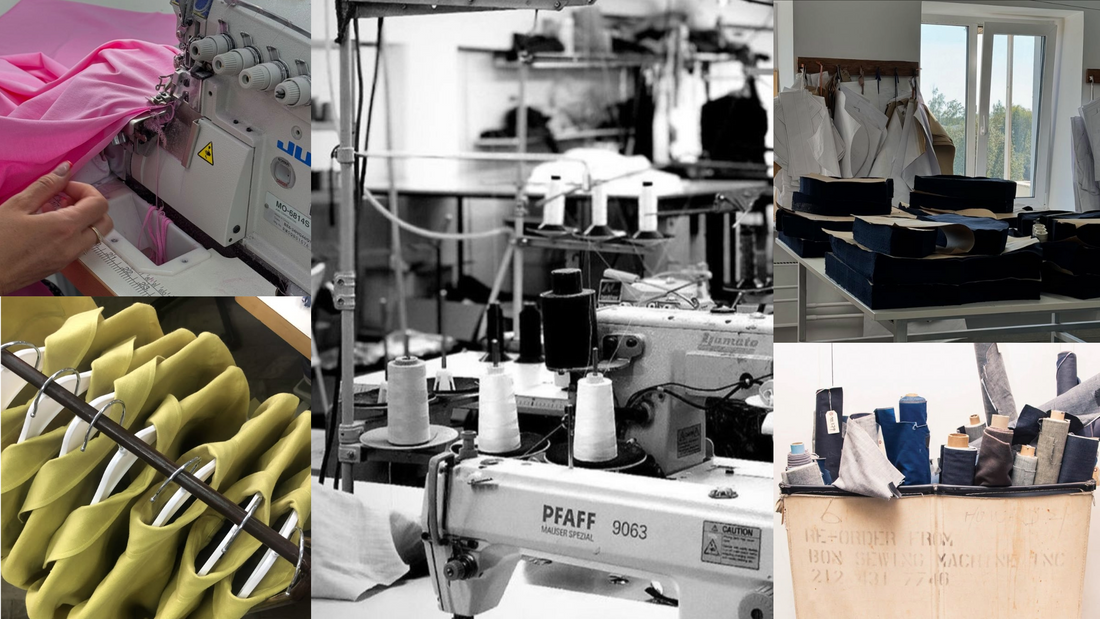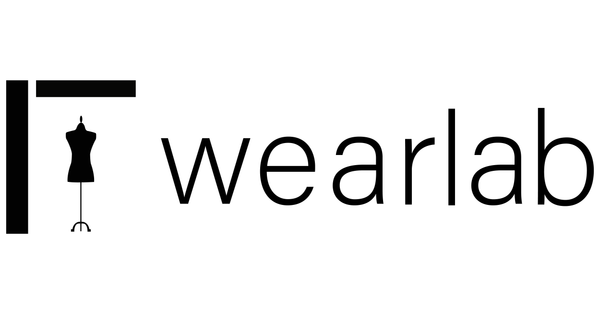
What You Need Before Contacting a Clothing Manufacturer (and Why It Matters)
Share
Whether you’re launching your first collection or scaling your fashion business, working with a clothing manufacturer isn’t as simple as sending an email and placing an order. At WearLab, we get dozens of inquiries every week from excited founders who have a big idea but no roadmap to production.
Here’s the truth: manufacturers aren’t designers, and they can’t read your mind.
If you want to actually move forward, you need to come prepared. Here’s what that looks like especially if you’re producing in North America and want to avoid delays, misunderstandings, or worse, getting ghosted by your factory.
- A Clear Design Concept
You don’t need to be an illustrator or have a full moodboard. But you do need to know exactly what you want to make. That means:
• A defined product (e.g. a cropped hoodie with contrast stitching, not just “a streetwear vibe”)
• Photos or sketches to communicate visual intent
• A vision for materials, trims, and colors
2. A Tech Pack
This is non-negotiable if you want to work with a serious manufacturer.
What’s a tech pack?
It’s a blueprint for your garment. It tells the manufacturer what to make, how to make it, and what materials to use. It includes:
• Flat sketches (front + back)
• Construction callouts
• Measurement specs
• Stitching, trims, and label placement
• Fabric info and sourcing notes
• Grading rules and tolerances
Without this, production teams will guess and you’ll be stuck with inconsistent samples, extra revisions, and higher costs.
3. Sample Development
Before bulk manufacturing, you must go through sampling. Even the most seasoned brands never skip this step.
Here’s how it typically works at WearLab:
• First Pattern & Sample
• Client Review & Fitting
• Revisions & Second Sample
• Approval or Final Revisions
Sampling locally helps you catch fit issues and construction concerns before scaling up. We offer both in-house local sample sewing in Vancouver and offshore sample production through vetted partners.
4. Fabric Sourcing
Don’t expect your manufacturer to magically provide the perfect fabric. Fabric sourcing is a separate process and one of the most important.
We support our clients by:
• Sourcing deadstock, organic, or performance fabrics based on your needs
• Sending swatches for approval
• Matching trims and hardware
Not having fabric ready delays production. Knowing what you want or working with a team who can guide you speeds everything up.
5. Quantity + Budget Range
Manufacturers need to know your quantity plans and budget constraints up front. This impacts:
• Whether they take your project on
• Pricing models
• MOQs (minimum order quantities)
• Lead times
Even if you’re unsure, come with a range. For example: “I want to make 100 units of each style, ideally under $40 landed cost per piece.”
6. Local vs Offshore: Know Your Path
Producing locally in Canada (like with WearLab) means more control, quicker feedback loops, and often better quality for small runs. Offshore production which we also manage offers lower unit cost and scale.
Each has pros and cons:
• Local: Higher cost per unit, faster sampling, better communication
• Offshore: Better margins at scale, longer lead times, greater complexity
We guide brands through both, but the key is knowing which is right for you before reaching out.
7. Who You’re Talking To
When you contact a manufacturer, you’re reaching out to a production partner, not a creative director. The more prepared you are, the more seriously they’ll take you.
At WearLab, we love working with passionate new designers. But passion without preparation leads to delays, miscommunication, and wasted energy.
So if you’re googling:
• “Clothing manufacturers Canada”
• “Local apparel production Vancouver”
• “Where to make my fashion line”
• “How to get a tech pack made”
• “Start a clothing brand North America”
Start with your foundation first.
Final Thoughts: Building Your Brand the Right Way
We know how overwhelming it can be to start from scratch. That’s why WearLab was built to support founders with design development, tech pack creation, sampling, fabric sourcing, and full-scale production all under one roof.
Whether you’re based in Canada, the US, or UAE, we’re your design development/production partner, not just your manufacturer.
